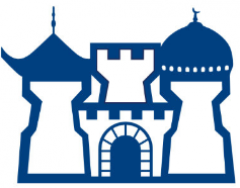We are pleased to be co-sponsoring with several colleagues a workshop/activity at the upcoming Linked Pasts VII Symposium. The activity will take place in two two-hour sessions on Wednesday and Thursday, the 15th and 16th of December (both starting at 16:00 CET). If you would like to participate, and/or be kept informed of details as the dates approach, please register your interest in this online form so we can be in touch with you.
Conveners: Tomasz Panecki, Bogumil Szady, Grzegorz Myrda (Polish HGIS); Karl Grossner, Ruth Mostern (World Historical Gazetteer)
Discussants: Ruth Mostern, Sinai Rusinek, Humphrey Southall; Merve Tekgürler
Reconciliation in the Linked Pasts context is the task of aligning records concerning named historical entities contained in one dataset with those of another, typically for places or people. Often it is a research dataset being reconciled against some authoritative resource, but sometimes aligning “peer” datasets is the goal. We perform reconciliation in order to augment our dataset with attributes gained from another (e.g. geographic coordinates and concordance identifiers in the case of places), and to link our records (and by extension our research) with that of colleagues concerned with the same places and people.
The conveners of this activity have identified three particular issues we are interested to focus on for place data, in discussion and in a related exercise. The first is the quality of reference datasets (e.g. Wikidata/DBpedia, TGN, etc.) and how their granularity influences the process of alignment. The second issue is the consistency of matching decisions between multiple reviewers. Although algorithms may help users to match place names with their modern counterparts, choices are often ambiguous. The third issue is the sustainability of results and whether such linked data products can be treated as reference works, which is associated with the problem of how the reconciliation of place names relates to the identification of geographic phenomena over time.
The activity will begin with 10-minute presentations from four discussants who have various perspectives on reconciliation from their own work. Their geographic areas of concern include historical Polish territories, the broad Middle East, Russia, and the UK. Following that, in a demo/exercise participants will jointly perform a reconciliation exercise on a portion of a 100-row example dataset assembled for this purpose, using the World Historical Gazetteer platform. Afterwards, free discussion will close out the first session. Participants will be asked to upload the sample data file into their own private space in WHG in between sessions, and perform the reconciliation task on all 100 records (this should take 30 minutes or less).
In the second session, we’ll review those records that had the most disagreement between reviewers in matching results, then have extended discussion amongst all participants about reconciliation in general and possible next steps. We anticipate the experience will foster interesting and useful discussion that will inform a best practices white paper to be co-authored by the conveners following Linked Pasts 7.
